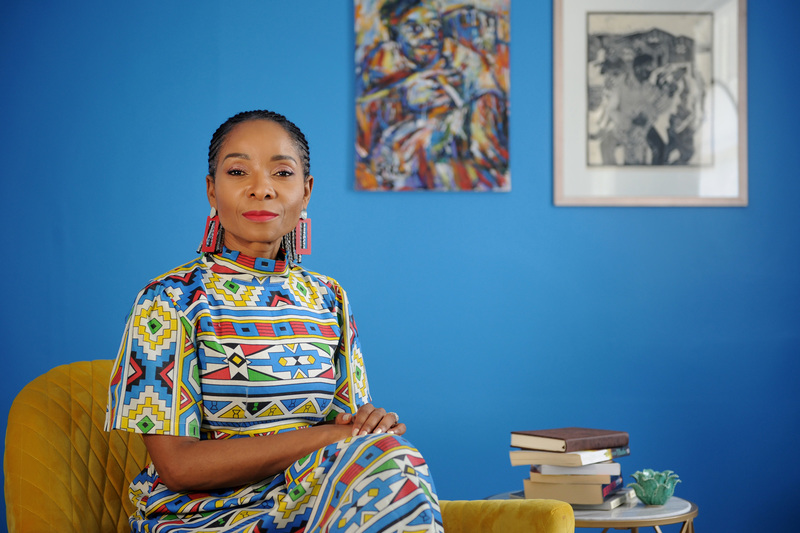Integrating our approach to inclusivity and transformation
05 October 2020 | From Kgethi
Dear colleagues
I am writing to inform you that the University of Cape Town (UCT) has taken the important decision to adopt an integrated approach to address the overlapping findings of three critical reports: the 2019 Staff Inclusivity Survey (IS), Professor Bongani Mayosi’s Panel Enquiry (MPE), and the Institutional Reconciliation and Transformation Commission (IRTC).
We were persuaded of the importance of taking this step, despite the differing scope of these reports, because of the seriousness with which we view the key common points of contention that emerged. These include Bullying, Emotional Wellbeing, Racial and other forms of discrimination and harassment, and Retention, Advancement and Leadership.
As we continue to grapple with the full implications of the contents, let me say that UCT’s chosen approach paves the way to integrate the work of our DVC: Transformation Professor Loretta Feris and Chief Operating Officer, Dr Reno Morar. They will in turn enjoy the support of an Inclusivity Strategy Advisory Group (ISAG), tasked with monitoring our university’s response, and an Inclusivity Strategy Working Group (ISWG) who will have oversight for implementing appropriate interventions.
At the same time, the university leadership recognises that there are also issues that are specific to particular faculties and departments. The complexity and uniqueness of these necessitates a bespoke approach, and members of leadership teams will assume responsibility here. I encourage them to consult the Transformation Benchmarks and their respective Transformation Committees for insight, and to communicate details of any initiatives for change to all staff, in the interests of transparency.
I also encourage them to contact the ISWG through Nina Barnes, our Institutional Culture Specialist with the Office for Inclusivity & Change (OIC) at nina.barnes@uct.ac.za, for clarity on the development of their individual strategies in line with the Template: Individualised Indicators of Success. The deadline for the inclusion plans is set for 30 November 2020, but I am cognisant of the constraints associated with off-campus operations due to the lockdown. If faculties or departments are struggling to complete their inclusion plans, they can contact the OIC at director.oic@uct.ac.za for support. Inclusion plans are to be approved by the Deans or Executive Directors and submitted to the DVC/COO to which the faculty or department reports.
All three reports have served up hard truths and highlighted avoidable mistakes. But they also provided invaluable insights, important lessons, and recommendations for improvement. As such, our intention is to conduct similar surveys to build on this baseline data and to assess our consequent interventions at the end of 2023, unless the COVID-19 situation dictates otherwise.
Sincerely
Professor Mamokgethi Phakeng
Vice-Chancellor
Read previous communications:
 This work is licensed under a Creative Commons Attribution-NoDerivatives 4.0 International License.
This work is licensed under a Creative Commons Attribution-NoDerivatives 4.0 International License.
Please view the republishing articles page for more information.
Coronavirus Disease 2019 updates
COVID-19 is a global pandemic that caused President Cyril Ramaphosa to declare a national disaster in South Africa on 15 March 2020 and to implement a national lockdown from 26 March.
UCT is taking the threat of infection in our university community extremely seriously, and this page will be updated regularly with the latest COVID-19 information. Please note that the information on this page is subject to change depending on current lockdown regulations.
Frequently asked questions
Daily updates
Campus communications
2020
Resources
Video messages from the Department of Medicine
Getting credible, evidence-based, accessible information and recommendations relating to COVID-19
The Department of Medicine at the University of Cape Town and Groote Schuur Hospital, are producing educational video material for use on digital platforms and in multiple languages. The information contained in these videos is authenticated and endorsed by the team of experts based in the Department of Medicine. Many of the recommendations are based on current best evidence and are aligned to provincial, national and international guidelines. For more information on UCT’s Department of Medicine, please visit the website.
To watch more videos like these, visit the Department of Medicine’s YouTube channel.
Useful information from UCT
External resources
News and opinions

As the COVID-19 crisis drags on and evolves, civil society groups are responding to growing and diversifying needs – just when access to resources is becoming more insecure, writes UCT’s Prof Ralph Hamann.
03 Jul 2020 - 6 min read Republished
The Covid-19 crisis has reinforced the global consequences of fragmented, inadequate and inequitable healthcare systems and the damage caused by hesitant and poorly communicated responses.
24 Jun 2020 - >10 min read Opinion
Our scientists must not practise in isolation, but be encouraged to be creative and increase our knowledge of the needs of developing economies, write Professor Mamokgethi Phakeng, vice-chancellor of UCT, and Professor Thokozani Majozi from the University of the Witwatersrand.
09 Jun 2020 - 6 min read Republished
South Africa has been recognised globally for its success in flattening the curve, which came as a result of President Ramaphosa responding quickly to the crisis, writes Prof Alan Hirsch.
28 Apr 2020 - 6 min read Republished
UCT's Professor Robin Wood supports South Africa's COVID-19 lockdown programme but calls for more testing.
09 Apr 2020 - >10 min read RepublishedStatements and media releases
Media releases
Read more
Statements from Government
In an email to the UCT community, Vice-Chancellor Professor Mamokgethi Phakeng said:
“COVID-19, caused by the virus SARS-CoV-2, is a rapidly changing epidemic. [...] Information [...] will be updated as and when new information becomes available.”
We are continuing to monitor the situation and we will be updating the UCT community regularly – as and when there are further updates. If you are concerned or need more information, students can contact the Student Wellness Service on 021 650 5620 or 021 650 1271 (after hours), while staff can contact 021 650 5685.























































































































































































